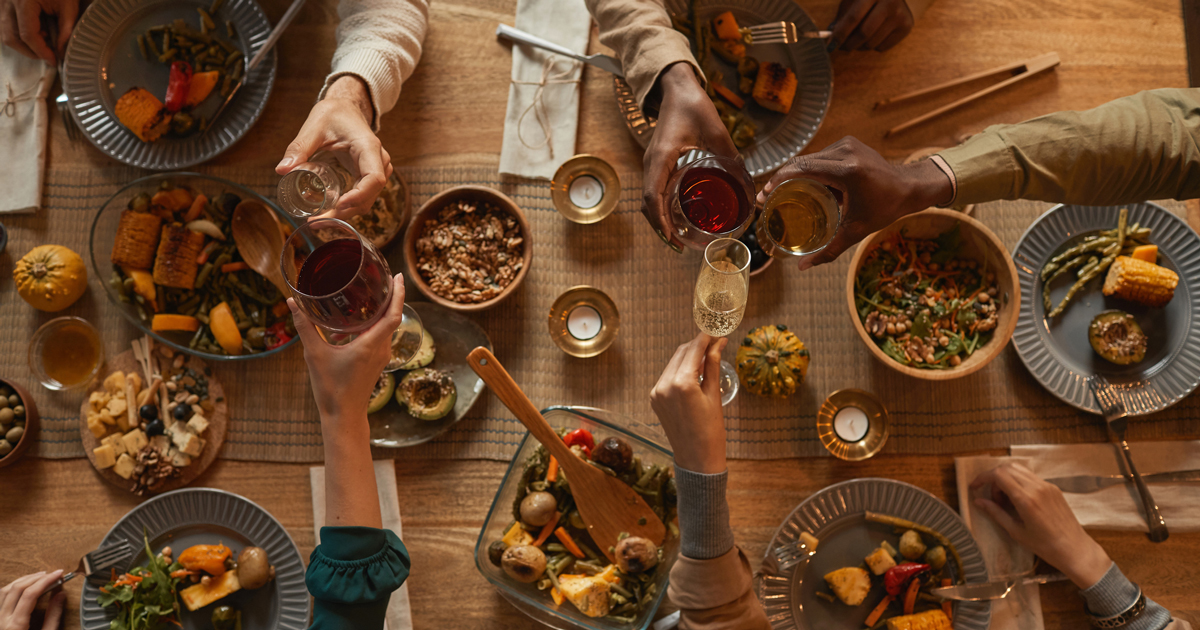Debating whether to attend that holiday gathering? 6 things to think about

Vaccines are approved for everyone ages 5 and up. It feels like we're rounding a corner in the pandemic. But the delta variant has changed how we see COVID-19.
The delta variant is more contagious and fully vaccinated people can become infected – albeit with a much smaller chance of developing severe illness, hospitalization or death. To prevent the spread, continue wearing a mask when in a shared indoor air space to protect those people you love and those who are most vulnerable.
If you're fully vaccinated, partially vaccinated or unvaccinated, the Centers for Disease Control and Prevention (CDC) still recommends practicing social distancing, handwashing and wearing a mask.
Infectious diseases expert Mark Rupp, MD, warns against prematurely relaxing precautions. “We all need to be aware that there are immunocompromised people who may not respond to the vaccine,” states Dr. Rupp. "While the rest of us continue to get vaccinated to protect them through herd immunity, precautions should be continued in some circumstances."
Here are six questions to consider as you decide to join a gathering or event this holiday season.
1. Are you fully vaccinated?
Vaccines significantly reduce your risk of a serious illness requiring hospitalization. In communities of high spread, keep a mask on when in a shared indoor airspace regardless of vaccination status.
If you plan to use public transportation like planes, buses or trains, or are going somewhere where people are at higher risk, like a hospital, long-term care facility, homeless shelter or prison, you must wear a mask.
If you are immunosuppressed (receiving cancer chemotherapy, have had an organ transplant, etc.) you may not have responded to the vaccine and may still be at risk. While we wait for a larger portion of the population to get vaccinated, you should continue to be cautious and maintain precautions.
If you're not fully vaccinated, your risk of getting and spreading COVID-19 is much higher. Currently, unvaccinated people are six times more likely to get infected than fully vaccinated people.

2. Who do you live with?
If you live with people who are immunocompromised or at higher risk for severe COVID-19 (over 65 years old, obese, underlying cardiorespiratory disease, diabetes, etc), your approach to events may change to protect them.
You may decide to avoid riskier settings (eg. crowded indoor events) in order to better protect vulnerable persons at home.
3. Will you be outdoors or inside?
COVID-19 is more likely to spread indoors than outdoors. The odds of catching COVID-19 indoors are 18.7 times higher than in open-air environments, according to a study cited by the CDC.
If you're gathering indoors, think about how you can increase airflow. Open windows and doors if possible.
4. How many people will be there?
If you're not fully vaccinated, continue to avoid medium or large gatherings.
How many people is too many? The CDC advises, "The size of the event should be determined based on whether attendees from different households can stay at least 6 feet apart."
Also consider whether everyone will be wearing a mask. Transmission is decreased when everyone protects one another by wearing a mask.
5. How long will you be there?
Time matters, especially indoors. The longer you stay in a space, the higher the risk. The CDC defines a COVID-19 exposure as someone who has been within 6 feet for a total of 15 minutes or more.
The air handling system of an indoor space and the amount of virus an infected person is shedding are also variables.
6. How do you feel about going?
If you're not ready to do some things, that's OK. The pandemic is still here and we have a ways to go before gatherings are risk-free. Playing it safe is smart. If you don't feel comfortable going to an event, you can politely reply with something like:
- While I'd love to see you, I won't be able to make it
- That won't work for me right now
- With cases still occurring in the community, I'd rather meet up later when it's safer
Remember: Five or more positive cases per 100,000 people per day means uncontrolled, substantial spread. If your county is orange or red on this map, wear a mask.
Vaccines are saving lives and making it safer to gather. Find out how to schedule an appointment in Nebraska at NebraskaMed.com/Vaccine.




